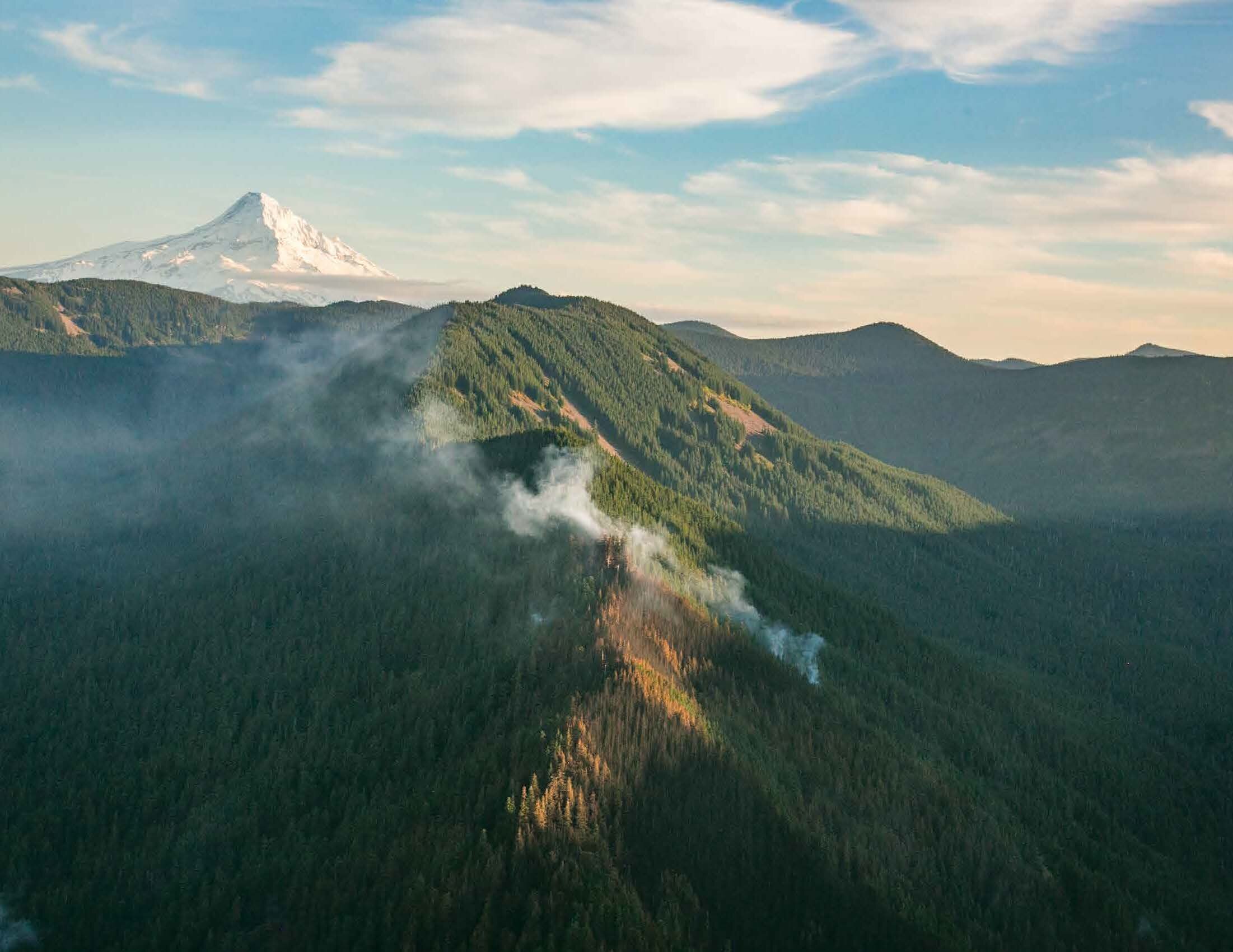
USFS Launches Northwest Forest Plan Amendment
The U.S. Forest Service convened the first meeting of a Federal Advisory Committee (FAC) in early September to work on an amendment of the Northwest Forest Plan (NWFP). Covering 17 national forests in 3 states, this is one of the most ambitious planning projects the agency has initiated in years. The agency wants to modernize the 30 year old NWFP by developing new strategies for dealing with climate change and wildfires, and engaging Tribal communities and Indigenous perspectives that were largely excluded from the original plan.
FUSEE's program director for the FireGeneration Collaborative, Ryan Reed, serves on the 21-person FAC as the sole designated "public" representative. Ryan is an Indigenous fire practitioner and wildland firefighter, and is the youngest member ever to serve on a FAC.

Run to the Water
Christmas turkey in Australia this year was served smoked, if not charred. In the final days of 2019 the increasingly familiar eerie visions of a day sky turned to night with embers flying in all directions were dished up on the people of New South Wales and Victoria, Australia. Sirens sounded out and residents were told to flee to the water…to the beaches. Many huddled together in small groups out in the sand, others staged a Dunkirk-style apocalyptic retreat under red skies onto the water in boats.

10 Ways that the Climate Crisis, Wildfires and Militarism are Intertwined
The war on wildland fire is simply an extension of our country’s extreme militarism – a place where veterans of foreign wars, wanna-be cops, and other conservative-minded men, mostly, can assemble, bond, and wrap themselves in a narrative of strength, heroism and sacrifice. There is a place for men and women to suppress fires near homes and vulnerable infrastructure. However, claiming glorious victory when fires are easiest to suppress, go out on their own, or when a break in the weather moderates conditions is disingenuous.

Oregon Governor Wildfire Response Council - A Lost Opportunity
This post concentrates on the work of the Fire Suppression Committee of the Governor's Wildfire Response Council (WRC), relying on draft policy recommendations issued on September 16, 2019

Forests, Wildfire and Climate Change
Wild re has been an integral part of western forests for thousands of years, but in recent decades con icts between people and re have increased dramatically. Climate change is bringing hotter, drier conditions to western forests, which is increasing re activity, and scientists predict that this trend will continue as the planet heats up. This guide is intended to help climate and forest activists understand the unique dynamics between forests, wild re, and climate so we can collectively chart a new path towards community resilience to the impacts of climate change. By modernizing our wild re policies, we can protect homes and communities while restoring the important role that re plays in the forest ecosystems of the American West.

A New Direction for California Wildfire Policy— Working from the Home Outward
Compiled by Douglas Bevington, Forest Director, Environment Now California Program
California’s state policies on wildfire need to change direction. The current policies are failing. They have not effectively protected homes, while they place dramatically increasing pressures on state and local budgets. Moreover, these policies are often based on notions about the role of fire in California’s ecosystems that are not supported by sound science and do not reflect the changing climate. These policies try to alter vast areas of forest in problematic ways through logging, when instead they should be focusing on helping communities safely co-exist with California’s naturally fire-dependent ecosystems by prioritizing effective fire-safety actions for homes and the zone right around them. This new direction—working from the home outward—can save lives and homes, save money, and produce jobs in a strategy that is better for natural ecosystems and the climate.

Stephen Pyne on Recent California Wildfires
Stephen Pyne, a FUSEE collaborator and ally, as well as distinguished fire historian, was joined last Friday by Alexandra von Meier, and urban electrical grid specialist, to discuss the devastation witnessed during the past two seasons of California wildfires and how this might be avoided in the future. Their discussion was moderated by Ira Flatow, on Science Friday, a radio show heard on public radio stations across the country and distributed by WNYC Studios.

2018 California Incident Management Team (IMT) Workshop Notes
Notes from the 2018 California Incident Management Team (IMT) Workshop.

A Homeowner’s Guide to Fire-Resistant Home Construction
Defending homes from fast-spreading high-intensity wildfires is one of the most difficult and dangerous duties for wildland firefighters. FUSEE feels strongly that informing homeowners about fire-resistant construction materials will help wildland firefighters better protect communities, and reduce some of the risks to firefighter safety. Moreover, when rural homes and communities are better prepared for wildland fire, then more options and opportunities open up to properly manage fires to restore forests and grasslands degraded from past fire exclusion.
